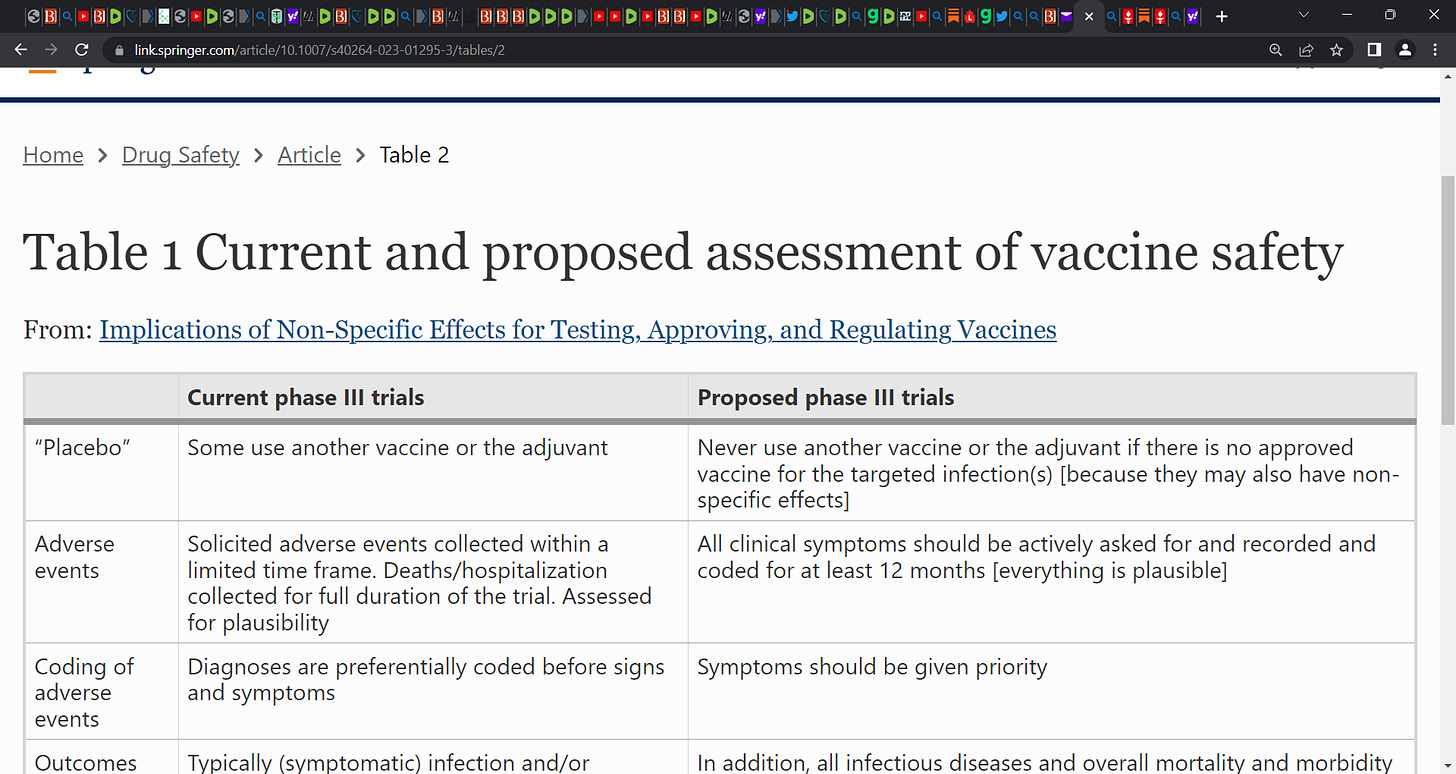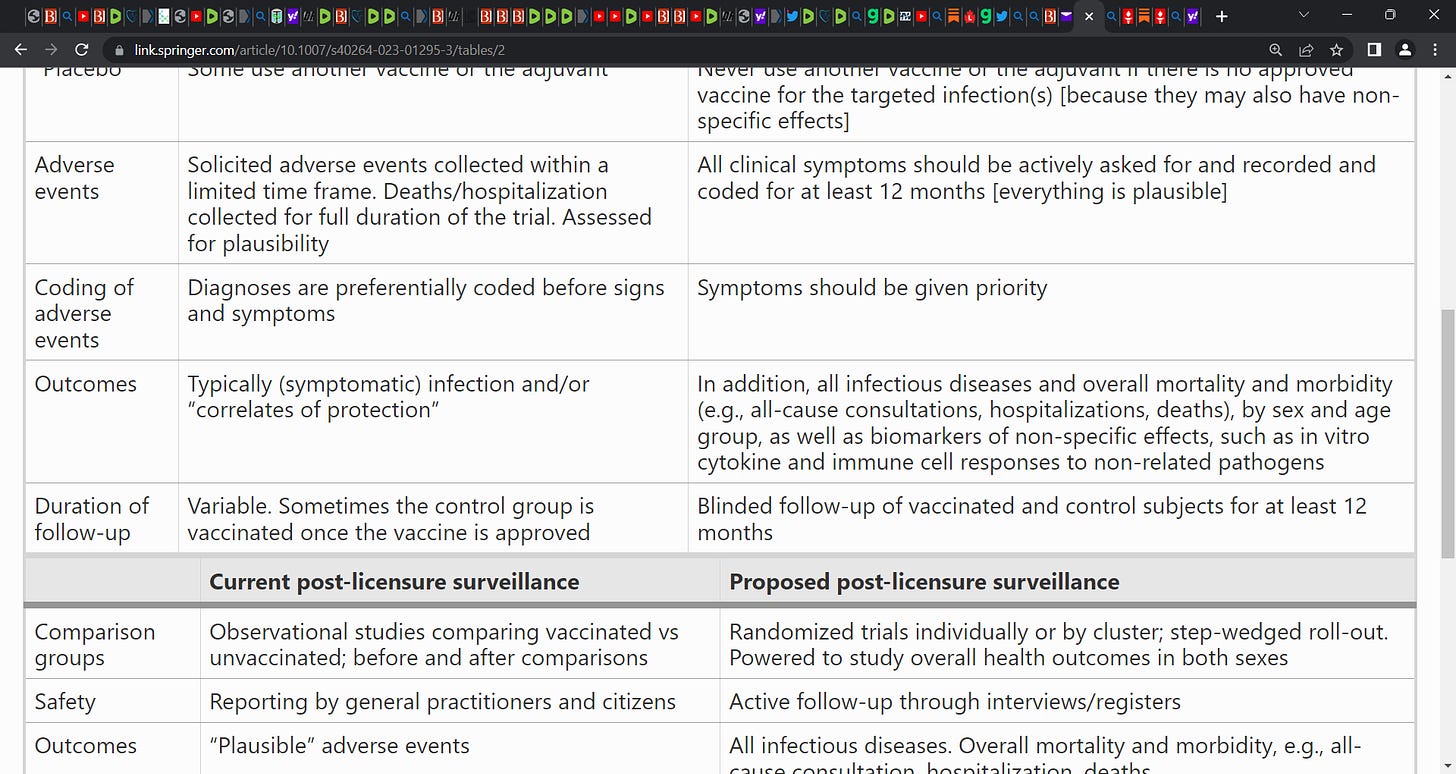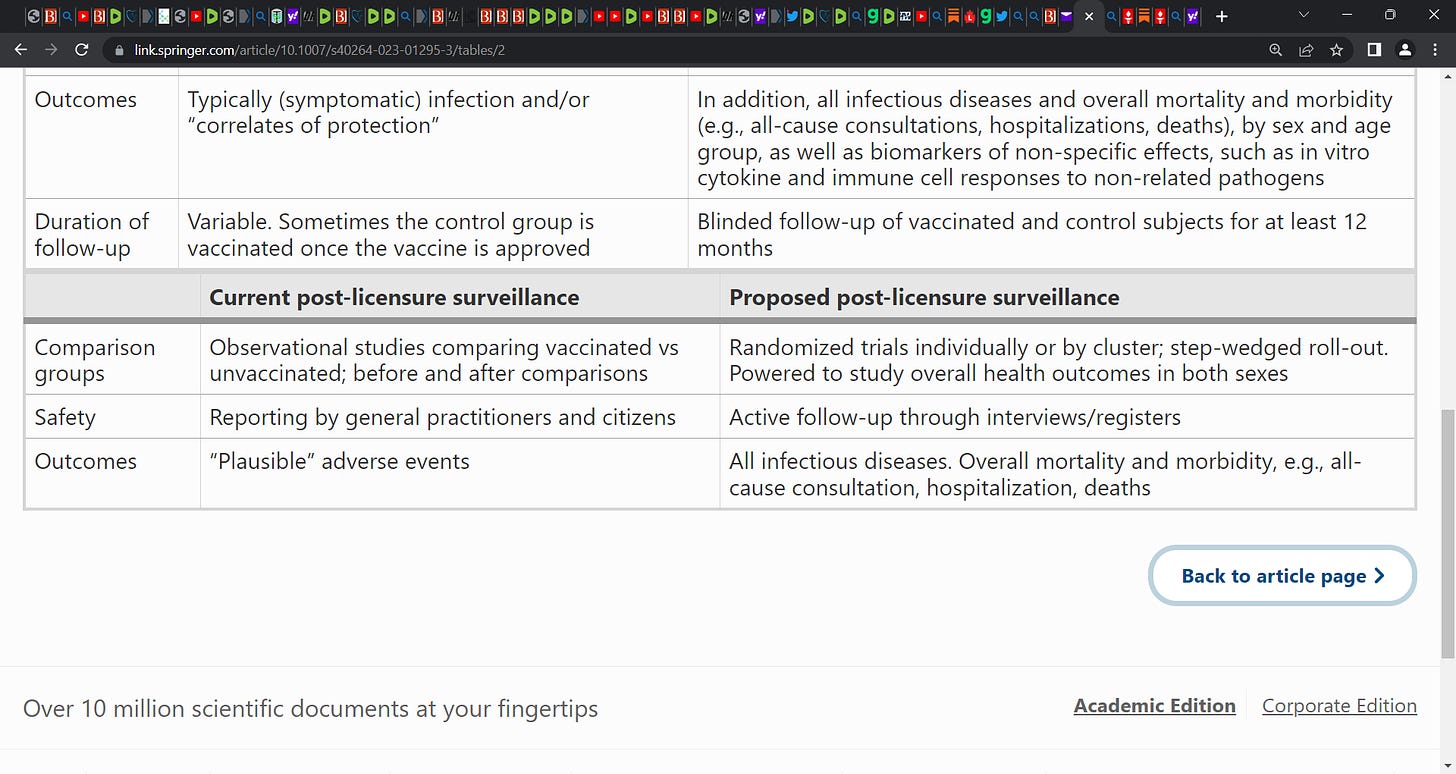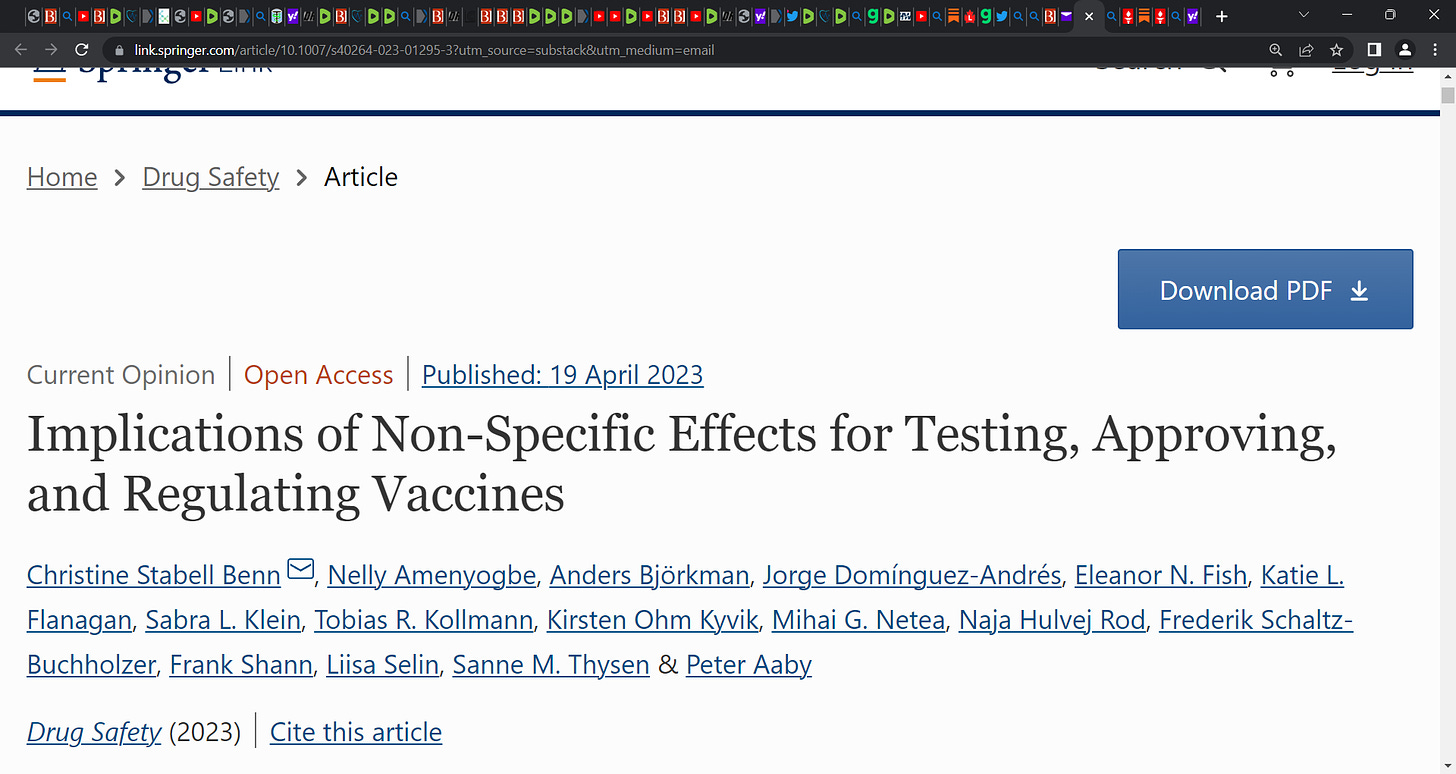Stabell Benn: 'Vaccines, in addition to their effect against the vaccine-specific disease, may also have “non-specific effects” affecting the risk of unrelated diseases'; vaccines have broad effects
on the immune system that may alter the risk of unrelated infections; do we need an updated approach to vaccine research & application? An updated new framework to vaccine development?
‘i)The current framework for testing and regulating vaccines was established before the realization that vaccines, in addition to their effect against the vaccine-specific disease, may also have “non-specific effects” affecting the risk of unrelated diseases.
ii)Accumulating evidence from epidemiological studies shows that vaccines in some situations can affect all-cause mortality and morbidity in ways that are not explained by the prevention of the vaccine-targeted disease.
iii)Live attenuated vaccines have sometimes been associated with decreases in mortality and morbidity that are greater than anticipated.
iv)In contrast, some non-live vaccines have in certain contexts been associated with increases in all-cause mortality and morbidity.
v)The non-specific effects are often greater for female than male individuals.
vi)Immunological studies have provided several mechanisms that explain how vaccines might modulate the immune response to unrelated pathogens, such as through trained innate immunity, emergency granulopoiesis, and heterologous T-cell immunity.
vii)These insights suggest that the framework for the testing, approving, and regulating vaccines needs to be updated to accommodate non-specific effects. Currently, non-specific effects are not routinely captured in phase I–III clinical trials or in the post-licensure safety surveillance. For instance, an infection with Streptococcus pneumoniae occurring months after a diphtheria-tetanus-pertussis vaccination would not be considered an effect of the vaccination, although evidence indicates it might well be for female individuals. Here, as a starting point for discussion, we propose a new framework that considers the non-specific effects of vaccines in both phase III trials and post-licensure.’
The proposed model:
3.1 Phase III Trials
The trials should include the anticipated target population, as already recommended, but not always followed [62].
The control group should only have saline, another neutral treatment or no intervention—not another vaccine or adjuvant that might have non-specific effects, thus not being a true control [63].
The trials should ideally, if possible, be conducted with a sufficiently large study population to rule out, with a prespecified degree of certainty, any major risk of serious outcomes from the vaccine, such as increased all-cause mortality or hospitalization.
A systematic follow-up for all symptoms should be for at least 12 months to register all-cause health outcomes, non-specific effects (positive and negative), and possible AEs. All symptoms occurring during the full duration should be coded by symptom/disease category and by sex and age. They should be reported in the trial publication and to regulatory authorities in sufficient detail to allow for scrutiny by independent researchers.
Assessment of biological plausibility should include the possibility that an unrelated infection or an increased severity of infection could be due to non-specific effects, for example, an infection with Streptococcus pneumoniae occurring months after a DTP vaccination could well be an effect of the vaccine.
Specific as well as non-specific vaccine effects should be analyzed and reported, applying the intention-to-treat principle from the day of randomization.
Vaccine trials should systemically register and report other interventions provided during a follow-up that may affect the immune system, for example, if participants received other vaccines. Efficacy and safety should be reported before and after such additional interventions.
In parallel, it is recommended that appropriate biomarkers for both positive and negative non-specific effects be sought. In the future, such biomarkers could potentially serve as “stop-go” signals already in the phase I/II trials.
SOURCE:
https://link.springer.com/article/10.1007/s40264-023-01295-3?utm_source=substack&utm_medium=email








The first thing that needs to be done before another needle enters another arm, is REPEAL the 1986 liability law signed by Reagan giving all drug manufacturers 100% ZERO LIABILITY!
Once these bastards know the are no longer protected, maybe, just maybe we will see safer medicine. Yet the jury is out on that one.
Personally, there is no such thing as a safe vaccine, never was and probably never will be.
God gave us a truly amazing immune system, how about letting our bodies use it for a change?
We don’t need no stinking vaccines!
Hippocrates had it right from the beginning, “Let thy food be thy medicine and thy medicine be thy food “. It’s cheap, it’s simple and most importantly it Works!
We need a total halt on all of them.